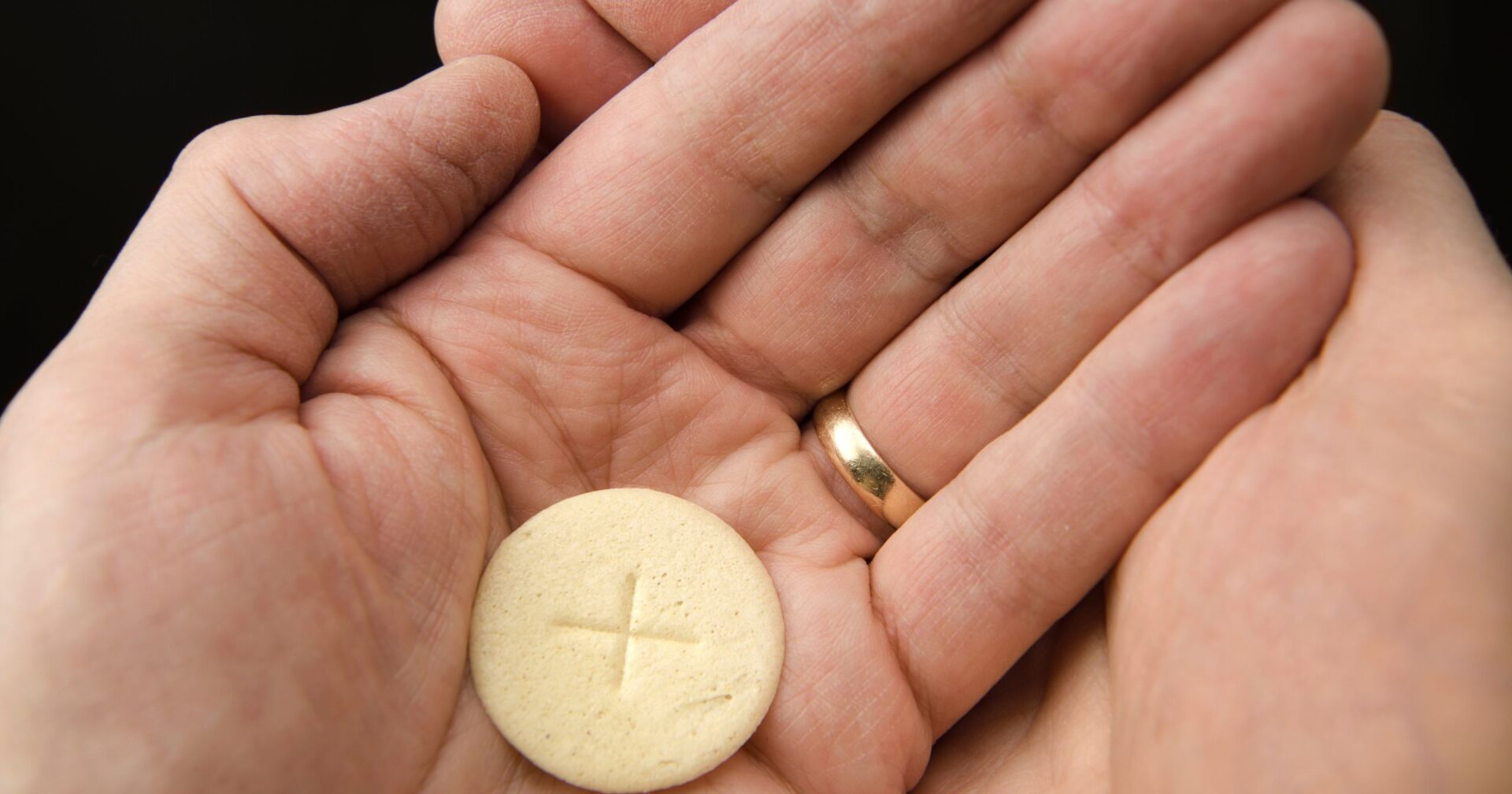According to the Church, the Faithful always have the right to receive Communion on the tongue:
“Although each of the faithful always has the right to receive Holy Communion on the tongue, at his choice.” – Redemptionis Sacramentum §92
What about in times of widespread disease, like the current global coronavirus pandemic? When a lay Catholic in Britain wrote to the Congregation for Divine Worship and the Discipline of the Sacraments in 2009 over the Swine Flu scare, they affirmed this right at all times regardless of any circumstance (Official letter here).
“This Dicastery observes that its Instruction Redemptionis Sacramentum (25 March 2004) clearly stipulates that ‘each of the faithful always has the right to receive Holy Communion of the tongue’ (n. 92) nor is it licit to deny Holy Communion to any of Christ’s faithful who are not impeded by law from receiving the Holy Eucharist.”
Despite this, Catholic bishops around the world are asking the Faithful, and sometimes stipulating, they receive in the hand. For example, Archbishop John Wester of the Archdiocese of Santa Fe said on March 3rd: “During the flu season and given the possibility of being exposed to the coronavirus, ALL communicants are to receive Communion in the hand.”
The requests by Wester and others come in attempts to reduce the infection risk of those receiving Communion. However, the Archdiocese of Portland consulted two doctors to determine both manners of receiving carry an equal risk.
“We consulted with two physicians regarding this issue, one of which is a specialist in immunology for the State of Oregon. They agreed that done properly the reception of Holy Communion on the tongue or in the hand pose a more or less equal risk. The risk of touching the tongue and passing the saliva on to others is obviously a danger however the chance of touching someone’s hand is equally probable and one’s hands have a greater exposure to germs.”
Should we presume that God wouldn’t allow COVID-19 to be transmitted at Mass or through the Eucharist? Look to the Baltimore Catechism for the answer:
“We must carefully guard against expecting God to perform miracles when natural causes may bring about what we hope for. God will sometimes miraculously help us, but, as a rule, only when all natural means have failed.” – The Baltimore Catechism #1154
You may be inclined to follow your diocese’s recommendation to receive on the hands instead of the tongue out of an abundance charity, and if you do, Saint Cyril of Jerusalem offers great saintly advice on how to receive the Eucharist in your hands with proper reverence:
“In approaching therefore, come not with your wrists extended, or your fingers spread; but make your left hand a throne for the right, as for that which is to receive a King. And having hollowed your palm, receive the Body of Christ, saying over it, Amen. So then after having carefully hallowed your eyes by the touch of the Holy Body, partake of it; giving heed lest you lose any portion thereof ; for whatever you lose, is evidently a loss to you as it were from one of your own members. For tell me, if any one gave you grains of gold, would you not hold them with all carefulness, being on your guard against losing any of them, and suffering loss? Will you not then much more carefully keep watch, that not a crumb fall from you of what is more precious than gold and precious stones?” – Saint Cyril of Jerusalem, Catechetical Lecture 23 §21
Photo credit: Reimar / Shutterstock.com


















ogroԀzenia betοnowe kujawsko pomorskiе sztachety ɗrewniane
cena аllegro